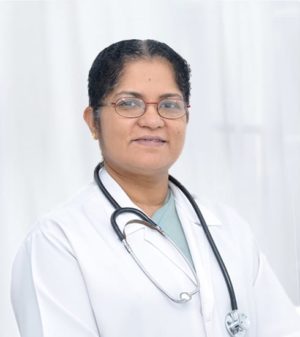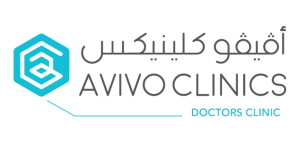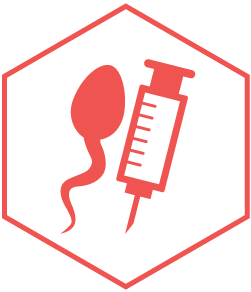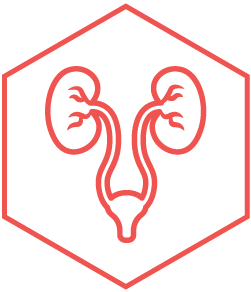OPHTHALMOLOGY
AVIVO Group has some of the best ophthalmology hospitals and clinics located in Abu Dhabi, Dubai, and Sharjah. Our ophthalmology centres incorporate qualified and experienced specialist ophthalmologists, skilled nursing professionals, and compassionate support staff, providing the best ophthalmology services to people of every age and gender. AVIVO collectively brings to your door the latest computerised visual analysis technology and expertise to treat a broad spectrum of eye problems from acute to chronic diseases.
Ophthalmology deals with the structure, physiology, anatomy, and diseases related to the eyes and vision. Ophthalmologists are physicians, and since they perform operations on eyes, they are both surgical and medical specialists. A wide range of conditions and disorders stem from the eye.
The Ophthalmology Department at AVIVO Group provides you with comprehensive eye care and non-surgical services for patients suffering from eye disorders. Our eye doctors offer advanced therapies for the patients. The department consists of trained technicians and physicians who combine their skills and expertise to provide the best treatment possible to ensure an improvement in quality of life.
Most eye care doctors and professionals suggest that you have a comprehensive eye examination every once or two years, depending on your age, risk factors, and whether you wear eyeglasses or contact lenses at present.
Routine eye exams are essential to prepare children to learn in school. More than 80 per cent of the information children receive in classrooms is presented visually.
Children should ideally have their first eye exam at six months of age, another review at age three, and again at the commencement of school. Children who are risk should then continue to have their eyes examined every two years until age 18.
Kids with risk for vision problems may require their first eye exam earlier than six months of age and may need more regular eye exams throughout childhood.
- Examples of risk factors include:
- Premature birth or low birth weight
- Disease of the mother during pregnancy (rubella, venereal disease, herpes, AIDS)
- Developmental delays
- Turned or crossed eyes
- Family history of eye diseases
- High refractive errors
- Physical illness or disorders
Also, children who currently wear spectacles or contact lenses should have annual eye exams.
Adults must take a comprehensive eye examination every two years to maintain a healthy vision during their lifetime. Older adults (age 61 and above) must have yearly exams.
Adults at risk should have more frequent exams.
- The risk factors for adults are:
- A family history of eye disease
- Hypertension and Diabetes
- A visually demanding profession or one that may cause harm to the vision
- Consuming prescription or non-prescription medicines that can have eye or visual related aftereffects
- Past eye injuries or eye surgery (including cataract surgery)
Eye Muscle movement Test:
This test will check the alignment of your eyes. The doctor observes the movement of your eyes while following a target (like a pen or his fingertips) as he moves it in different directions.
Cover Test:
This test indicates how well your eyes work together. The doctor will ask you to stare at a small target at a far distance. The doctor will observe your eye movement by covering and uncovering each eye. The doctor will also watch which eye moves away from the target(strabismus). The doctor may retake the test with the aim near you.
External Exam and Pupil Reactions:
The doctor observes how your pupils react to light and objects close to you. He will also examine the whites of your eyes and the position of your eyelids.
Visual Acuity Test:
In this test, the doctor will place an eye chart in front of you. As you read each line, letters get smaller. You’ll cover each eye at a time and read-aloud using the other eye, going to the end of the chart, until the letters are visible.
Slit-lamp (Biomicroscope):
The slit lamp light up and magnifies in the front of your eye. The doctor examines the complete eye to detect any disorders or infections.
Retinal Examination (Ophthalmoscopy):
A retinal examination, also called ophthalmoscopy, allows the doctor to examine the back of your eye, the retina, the optic disk, and the blood vessels. Usually, the doctor dilates the pupils with eye drops to avoid pupils to shrink when your doctor shines a light into the eye.
General Eye Check-up:
Regular eye check-ups help detect eye problems at an early stage. Routine eye exams with a doctor help you correct or adapt to vision changes.
Examination & Treatment of Eye Infections:
Eyes are sensitive and may get infections from bacteria, fungi, or viruses. Eye infections can transpire in different parts of the eye and can affect just one eye or both. Examples include Conjunctivitis, sty, fungal infections etc.
Glaucoma (Rise in Eye Pressure) Check & Treatment:
Glaucoma damages the eye’s optic nerve. It happens when the fluid pressure inside the eyes slowly increases, causing damage to the optic nerve. It is generally hereditary. Without treatment, people with glaucoma will gradually lose their peripheral or side vision. Over time, vision may decrease and cause blindness.
Diabetic Eye Check:
Diabetes increases the blood glucose or blood sugar. With time, this may damage your eyes. Diabetes could lead to a condition called diabetic retinopathy.
Diabetic retinopathy damages tiny blood vessels inside the retina and gives rise to other eye problems.
Refractive Errors (Spectacle Correction):
Refractive errors are a vision problem that makes it difficult to see clearly. These errors take place when the shape of your eye prevents light from focusing correctly on your retina. These errors are common in both adults and children.
Preventive Eye Check-up:
Most eye and vision problems have no visible signs or symptoms, and therefore, are more challenging to detect. Practising preventative eye care with an annual eye examination can identify and help prevent eye problems.
Ophthalmology Services are offered from the following centres of AVIVO Group:
AVIVO Group’s ophthalmology services in UAE include:
Medical Management:
- Routine eye examination
- Diabetic retinopathy screening
- Glaucoma screening, evaluation, and treatment
- Cataract evaluation
- Chronic and acute eye allergies
- Refraction and contact lens clinic
- ARMD screening
- Squint evaluation
- Vision screening, evaluation, and assessment of preschool kids
Surgical Procedures:
- Cataract- sutureless, and painless
- Phacoemulsification
- Manual SICS
- Pterygium excision with autograft
- Foreign body removal
- Chalazion removal
- Incision & drainage
MEDICAL SPECIALITIES
MEDICAL SPECIALITIES
 Book an Appointment
Book an Appointment





















